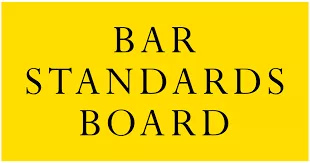Worker, employee, or self-employed?
It's sometimes difficult to tell if you are an employee, a worker, or self-employed. It is important to understand which you are, as if you are an employee you have more rights than if you are a casual worker, on a zero hours contract or self-employed.
Being a migrant has no effect on your employment rights (as long as you are allowed to work in the UK).
On this page we explain how you know which employment status, and what basic rights that means you have. Includes zero hours contracts, agency work and people working in the gig economy. You might be an employee even if your employer says that you are not.
The information in this guide applies to England and Wales.
Last updated: August 2023
Employees
You are likely to be an employee if:
- you have to do the work yourself – you can’t choose to pass it on or hire someone else to do it, or refuse to do it, and
- you must work regularly unless you are on holiday, and
- someone is in charge of you and tells you what to do and how to do it, and
- you have set hours and are paid by your employer, depending on the hours you do.
Your employment contract
If you are an employee, you have a contract of employment whether or not it is put into writing. The contract of employment may be agreed verbally or by how people act. You have a right to ask your employer to put down the main terms of your contract in writing if this hasn't been done already. The contract will say things like how much and when you will be paid, what your hours of work are, your place or places of work and how much holiday and sick leave you can have.
Read through your contract and keep it in a safe place - you will need your contract if you have a problem. By law, your main terms and conditions of employment have to be given to you in writing within two months of starting work at the latest. Your main terms and conditions of employment are your name and employer’s name, place of work, start date, job title, pay details, entitlement to holiday and sick pay, pension scheme, and the notice you have to give and are entitled to receive before leaving.
Your rights as an employee
If you are an employee you have the same rights as workers (see below) plus more on top, such as:
- maternity, paternity and adoption leave and pay
- redundancy pay after two years of continuous employment
- the right to claim unfair dismissal after two years of continuous employment.
To learn more about these and other rights as an employee go to Acas - checking your employment rights.
Workers
You are likely to be a worker if:
- your work is not as regular or structured as the work described above, and
- you don’t have guaranteed hours from the person or organisation who pays you, and
- you don’t have to make yourself available for work at set times on a regular basis, (although you should do the work you agree to do).
Workers include casual workers, people on zero hours contracts, agency workers and people working in the gig economy. We talk more about these below.
Your rights as a worker
If you are a worker you do not have the same rights as an employee. But you do have the following rights:
- you should be given written document that sets out your job rights and responsibilities
- you are entitled to the National Minimum Wage
- you should get paid holiday leave - also called ‘statutory annual leave’
- the organisation who pays you must give you payslips
- you should not be unlawfully discriminated against
- you should not be treated unfairly for working part time
You might also be entitled to other rights such as Statutory Sick Pay, Statutory Maternity Pay, Statutory Paternity Pay, Statutory Adoption Pay, and Shared Parental Pay. If you need to know about these rights it is important to get advice - see if you can find an adviser near you via Advicelocal.
If you think you might be an employee, but your employer says that you're not, see if you can find an adviser near you via Advicelocal.
Agency work
You are likely to be an agency worker if you are recruited by an employment agency, and are paid by that agency to work in a different workplace. Your contract is with the agency, who place you with an organisation that you do temporary work for.
When you get work from the agency they must give you key information about the work, the money you will be paid and the hours. To read more about agency work go to Acas - agency workers.
Zero hours contracts
There has been a huge rise in zero hour contracts over the last few years.
Zero hours contracts are particularly common in shops, hospitality, and catering and food delivery, and care workplaces.
A zero hours contract does not guarantee you any work, and you do not have to accept any work. You can look for and accept work from another employer at any time if you have a zero hours contract.
Your rights are those of a worker - listed above. Or, depending on how you work and what your work conditions are like you might actually be an employee, giving you more rights. If you are not sure or you do not agree with what your employer says your employment status is you can get help from Acas.
Gig workers
Work in what is known as the ‘gig economy’ shares similarities with work through zero hours contracts. The main difference is that you are paid for each ‘gig’ whatever that might be. For example, if you are a delivery driver you are paid for each parcel you deliver, not by the hours you spend working. The work is very flexible but often has no security and you do not have the rights that an employee has.
Self-employed people
You are likely to be self-employed if:
- you can choose when, how and where to work
- you can hire other people
- you use all your own equipment
- you run a business and invoice your customers instead of being paid
- you can work for different people and charge different rates
Your rights if you are self-employed
You do not have the same rights as employees or workers but you do have the following rights:
- for your health and safety to be protected while you are working somewhere for your client
- not to be discriminated against if you are engaged personally to do work for the client.
About this guide
The law is complicated. We recommend you try to get advice from the sources we have suggested if at all possible.
This guide was written by Law for Life thanks to funding from the Bar Standards Board.

Law for Life would like to thank all those who provided advice and feedback on this guide and to Orlando Holloway from 42BR Barristers who peer reviewed the guide.
Speak another language?
Or want this page read aloud to you?
Press the button at bottom of the screen to choose language and accessibility options.
Naciśnij przycisk u dołu ekranu, aby wybrać język i opcje ułatwień dostępu.
按屏幕底部的按钮选择语言和辅助功能选项
Pulse el botón situado en la parte inferior de la pantalla para elegir las opciones de idioma y accesibilidad.
اضغط على الزر الموجود أسفل الشاشة لاختيار خيارات اللغة وإمكانية الوصول
Stlačením tlačidla v dolnej časti obrazovky vyberte jazyk a možnosti prístupnosti.
If we’ve helped you, please help us
Please tell us about your problem. Knowing more about our users and what you found useful helps us get funding to keep our website going. We also want to hear if there is anything you didn’t like or couldn’t find so that we can be even more useful. It is OK to skip questions – but please press ‘submit’ at the end as otherwise we don’t get your response.
More information about your employment status
For more help see employee rights. We have hand-picked the best accurate information available about employee rights in England and Wales available anywhere on the web, so that you don't have to.
Related content




